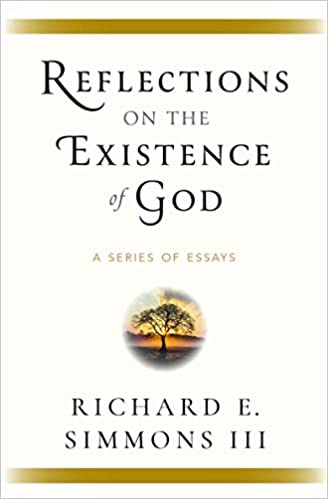A Brief Book Summary from Books At a Glance
by Steve West
About the Author
Richard E. Simmons III is the founding director of The Center for Executive Leadership, a faith-based ministry in Birmingham, Alabama focused on counseling businessmen and professionals, which he started in 2001.
Introduction
Every chapter in this book contains a number of very short essays on each topic. They are the kind of essays that Peter Kreeft called “coffee cup size” – they can be read during one’s morning coffee. As the title indicates, this work is a series of reflections on the existence of God, and the material covers various apologetic, philosophical, and scientific issues. Simmons brings together a large variety of quotes and stories to illustrate his points.
Table of Contents
Chapter 1 Introductory Essays
Chapter 2 The Presence of Evil
Chapter 3 The Moral Argument
Chapter 4 The Search for a Meaningful Life
Chapter 5 The Human Experience
Chapter 6 The Psychology of Unbelief
Chapter 7 The Battle with Science
Chapter 8 Evolution: A Theory in Crisis
Chapter 9 The Existence of God
Chapter 10 Final Reflections
Summary
Chapter 1: Introductory Essays
The existence of God is the most important subject in the world. Whether or not God exists has larger consequences than anything else. Everyone has a worldview, and this mental map of how we see and order our understanding of reality affects everything that we do. The most important block in our worldview foundation is belief or disbelief in God. Worldviews provide us with our ultimate explanations of the meaning of life. It is important to recognize that truth is not invented, it is discovered. We have a moral and philosophical obligation to seek evidence for important beliefs. How many people have truly investigated the evidence for the existence of God? Everyone should strive to believe responsibly. Prominent former atheists like Francis Collins and C. S. Lewis came to see that faith and reason go together. Many atheists disbelieve in God, but they do so without ever having conducted an open-minded investigation of the evidence. The evidence gives us great confidence in Christian truth.
Truth, reason, and facts are not generally coercive, however, if someone doesn’t want to believe something. For decades Antony Flew was one of the most celebrated atheist philosophers in the world, but he followed the evidence to where it led and concluded that there must be a supernatural being who created the universe. He changed his mind because he was committed to following the truth wherever it led. C. S. Lewis was a staunch atheist who also followed the evidence to its final conclusion. He was willing to look at the Gospels and see that they were historically sound and taught the truth. Everyone needs to have this same attitude and be willing to work through the evidence of Christianity, being open to whatever the truth actually is. . . .
[To continue reading this summary, please see below....]The remainder of this article is premium content. Become a member to continue reading.
Already have an account? Sign In
